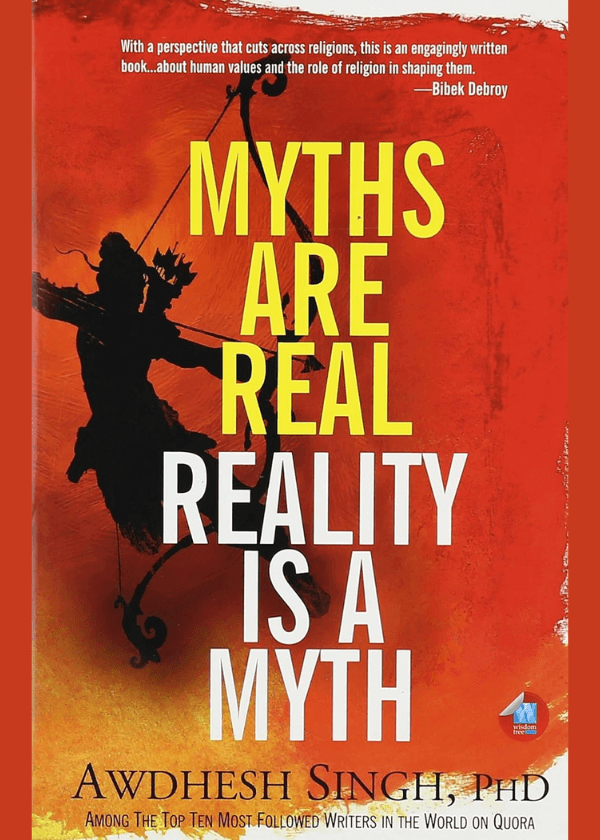Myths Are Real, Reality Is A Myth
By Awdhesh Singh
New realities are being created every moment. But how really are they taking form? Certainly, an existing reality can’t lead to a new one by itself. The genesis of new realities lies in–believe it or not–fiction. It is fictions, myths and legends–our imagination–that has shaped and is shaping our world. This highly evocative and analytical book by Dr. Awdhesh Singh digs deep into the secrets of consciousness of societies, religions and nations to unravel the myths of reality and reality of myths.
“With a perspective that cuts across religions, this is an engagingly written book…about human values and the role of religion in shaping them.” – Bibek Debroy
Reviews From Amazon
Helps in creating a better reality
A book to understand more on the chaos in India because when you understand it you can rewrite and can lead better. It provides the basis of creating Reality distortion field by showing how realities are formed.
Very well researched book
You can refer it to know how the mythologies affected people in various fields of life. If you are interested in philosophy and have curiosity about various religions and their practices in the world, you can read it.
Exploring vicious cycle of fiction becomes reality
Awdhesh sir rightly pointed out the contentious impact of myths on our society since it is started and proved this fact with pragmatic ways.
A captivating and thought-provoking read
One of the strengths of the book is the author’s ability to provide concrete examples to illustrate the points, which made the content more relatable and accessible. I would highly recommend this book to anyone who is interested in exploring the complexities of myths and reality.
Mind boggling
Food for thought. Practical understanding of the world. Very useful to understand ourselves and others too.


